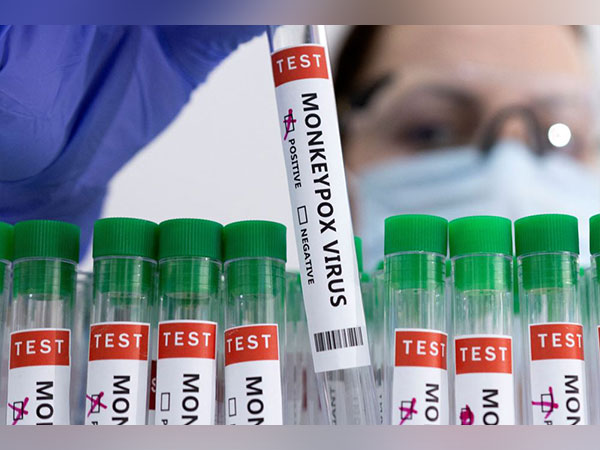Health News Roundup: Taiwan eyeing earlier end to COVID quarantine for arrivals; U.S. seeing decline in monkeypox new case growth, CDC says and more
"SKYSONA is the first FDA approved therapy shown to slow the progression of neurologic dysfunction in boys" with early, active Cerebral Adrenoleukodystrophy (CALD), the company said in a statement, saying CALD is a "devastating and fatal neurodegenerative disease." U.S. seeing decline in monkeypox new case growth, CDC says U.S. Centers of Disease Control and Prevention (CDC) Director Rochelle Walensky said on Thursday she was cautiously optimistic over a decline in the growth of new monkeypox cases, but that some areas of the country are still experiencing a rise in infections.

Following is a summary of current health news briefs.
Bahrain detects first monkeypox case - state media
Bahrain has detected its first monkeypox case, the state news agency BNA said on Friday, citing the health ministry. The ministry said the patient was returning from abroad when his symptoms were suspected and diagnosed, BNA added.
Taiwan eyeing earlier end to COVID quarantine for arrivals
Taiwan is eyeing an earlier end to its mandatory quarantine for all arrivals and has been making relevant preparations, Premier Su Tseng-chang said on Friday, as the government continues to ease controls put in place to contain the spread of COVID-19. Taiwan has kept its entry and quarantine rules in place as large parts of the rest of Asia have relaxed or lifted them completely, though in June it cut the number of days spent in isolation for arrivals to three from seven previously.
U.S. FDA approves bluebird bio's gene therapy for a rare neurological disorder
The U.S. Food and Drug Administration (FDA) has approved Bluebird bio's gene therapy for the treatment of a rare neurological disorder, the company said late on Friday. "SKYSONA is the first FDA approved therapy shown to slow the progression of neurologic dysfunction in boys" with early, active Cerebral Adrenoleukodystrophy (CALD), the company said in a statement, saying CALD is a "devastating and fatal neurodegenerative disease."
U.S. seeing decline in monkeypox new case growth, CDC says
U.S. Centers of Disease Control and Prevention (CDC) Director Rochelle Walensky said on Thursday she was cautiously optimistic over a decline in the growth of new monkeypox cases, but that some areas of the country are still experiencing a rise in infections. She also said during a White House briefing that the agency was taking steps to address racial and ethnic disparities in distribution of monkeypox vaccines.
Mainland China reports first imported monkeypox case
The Chinese city of Chongqing reported one case of the monkeypox virus infection on Friday in an individual who arrived from abroad, marking mainland China's first known monkeypox infection amid the recent global outbreak of the virus. The transmission risk is low as the individual was put in quarantine upon arrival in Chongqing, the municipal health commission said in a statement. All close contacts have been isolated and are under medical observation.
Consumer group says drugmakers abuse U.S. patent system to keep prices high
Makers of the top selling drugs in the United States are costing patients billions of dollars and worsening a drug pricing crisis by abusing the U.S. patent system to stifle competition and inflate prices, a consumer group said on Thursday, The New York-based Initiative for Medicines, Access & Knowledge (I-MAK) said in a report that three of the top 10 selling drugs in the U.S. face no competition in the country and will cost Americans an estimated further $167 billion before they are expected to so.
WHO 'strongly advises against' use of two COVID treatments
Two COVID-19 antibody therapies are no longer recommended by the World Health Organization (WHO), on the basis that Omicron and the variant's latest offshoots have likely rendered them obsolete. The two therapies - which are designed to work by binding to the spike protein of SARS-CoV-2 to neutralise the virus' ability to infect cells - were some of the first medicines developed early in the pandemic.
France's health body warns of resurgence of COVID virus in the country
France's national health body warned on Friday of a resurgence of COVID-19 cases in the country, and urged people to continue to get vaccinated to protect themselves against the virus. The Sante Publique France (SPF) body said that during the week of Sept 5-Sept 11, there had been 186 confirmed COVID cases for every 100,000 people in France - a figure up 12% versus the previous week - representing an average of around 18,000 new cases per day.
EU backs AstraZeneca's drug for prevention of infant RSV
AstraZeneca said on Friday its drug for preventing infant RSV, Beyfortus (nirsevimab), was recommended for approval in the European Union by a European Medicines Agency committee.
The drugmaker also said if Beyfortus is approved, it would become the first protective option for newborn and infant population against RSV lower respiratory tract disease.
EU regulator backs wider use of AstraZeneca COVID therapy
Europe's medicines regulator has backed using AstraZeneca's preventative COVID-19 therapy as a treatment for the disease and also endorsed another medicine as preventative option for another common virus. The regulator's recommendations are usually followed by the European Commission when it takes a final decision on drug approvals.
(With inputs from agencies.)










